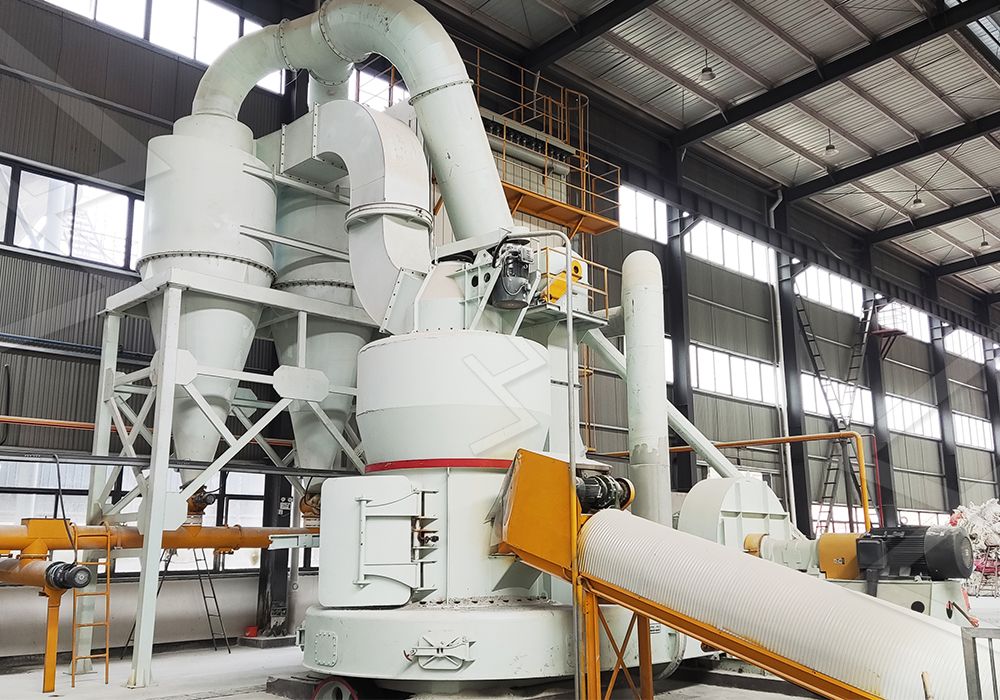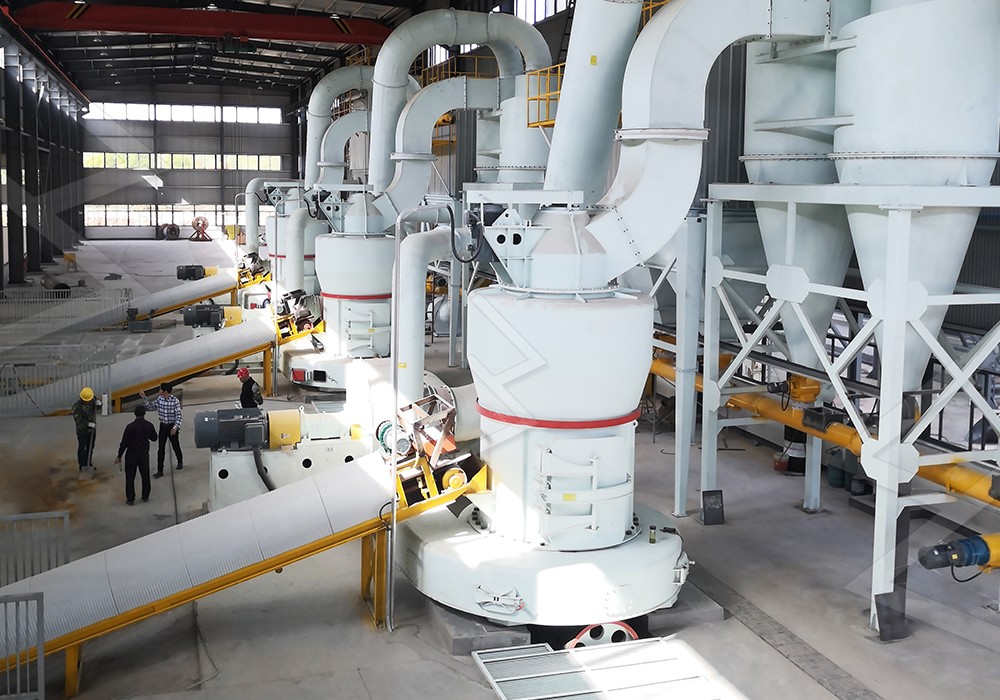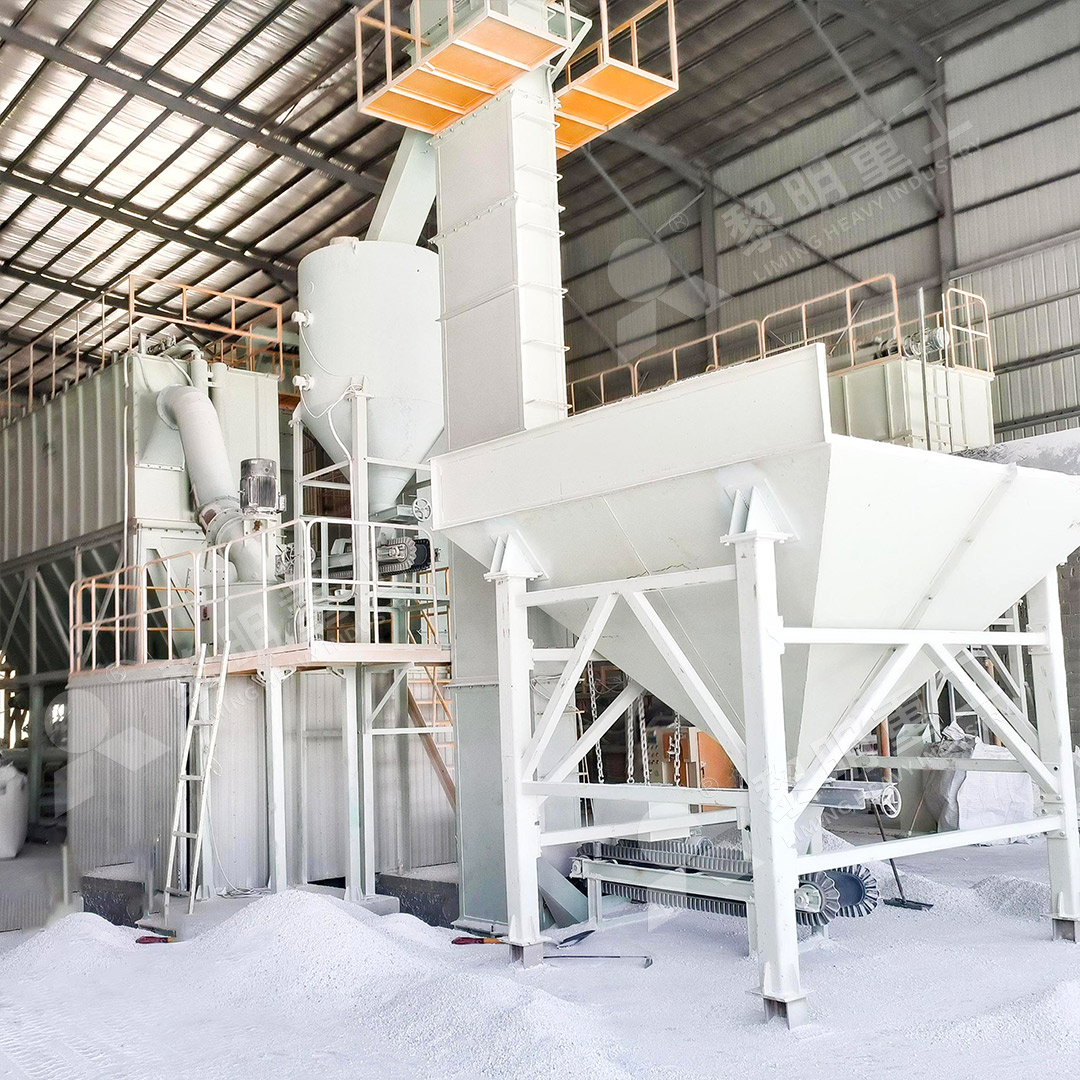6R Raymond Mill for Efficient Grinding of Gypsum Powder
We provide a wide range of mills — including Raymond mill, trapezoidal mill, vertical mill, ultrafine mill, and ball mill, obtained ISO9001 international quality certification, EU CE certification, and Customs Union CU-TR certification. Suitable for processing minerals such as limestone, phosphate, quicklime, kaolin, talc, barite, bentonite, calcium carbonate, dolomite, coal, gypsum, clay, carbon black, slag, cement raw materials, cement clinker, and more.
The discharge range of these mills can be adjusted to meet specific processing needs, typically from 80-400 mesh, 600-3250 mesh, and can achieve the finest particle size of up to 6000 mesh(D50).
If you are looking for a reliable grinding solution to turn stone or minerals into fine powder, please feel free to contact our online customer service.
6R Raymond Mill for Efficient Grinding of Gypsum Powder
In the world of industrial mineral processing, gypsum powder production demands specialized equipment that can deliver consistent particle size, high throughput, and operational efficiency. The 6R Raymond Mill has established itself as a reliable workhorse for this specific application, offering robust performance for medium to large-scale gypsum processing operations.

Why Gypsum Processing Requires Specialized Equipment
Gypsum, a soft sulfate mineral composed of calcium sulfate dihydrate, presents unique challenges in powder processing. Its moderate hardness (1.5-2 on Mohs scale) and thermal sensitivity require milling equipment that can generate minimal heat during operation while achieving the desired fineness for various applications including construction materials, dental products, and food additives.
The 6R Raymond Mill addresses these requirements through its sophisticated grinding mechanism featuring six grinding rollers. This configuration provides increased grinding pressure and larger grinding area compared to smaller Raymond mill models, resulting in higher production capacity while maintaining precise control over particle size distribution.
Technical Advantages for Gypsum Applications
When configured for gypsum processing, the 6R Raymond Mill demonstrates several distinct advantages. The pendulum-style grinding system ensures consistent pressure on the material bed, while the integrated classifier allows real-time adjustment of product fineness from 80 to 425 mesh. The mill’s air circulation system provides natural cooling during operation, preventing thermal degradation of gypsum’s chemical structure.
Operational efficiency is further enhanced by the mill’s ability to handle moisture content up to 6% without pre-drying in many cases, though this depends on specific process requirements and local climate conditions. The robust construction and wear-resistant materials in critical components ensure extended service life even with the abrasive nature of some gypsum sources.

Beyond Traditional Raymond Mills: Advanced Alternatives
While the 6R Raymond Mill serves as an excellent solution for many gypsum processing operations, certain applications demand even higher performance. For operations requiring ultra-fine gypsum powder or dealing with specialized quality requirements, we recommend considering our MW Ultrafine Grinding Mill as an advanced alternative.
The MW Ultrafine Grinding Mill represents a technological leap forward, capable of producing gypsum powder with fineness between 325-2500 meshes. Its innovative design features higher yielding capacity with lower energy consumption – achieving 40% higher production capacity compared to jet grinding mills with only 30% of the energy consumption. The absence of rolling bearings and screws in the grinding chamber eliminates common failure points, while the German-designed cage-type powder selector ensures precise particle classification.
For operations prioritizing vertical space utilization and seeking the latest in grinding technology, our LUM Ultrafine Vertical Grinding Mill offers another compelling option. Integrating ultrafine powder grinding, grading and transporting in a single unit, the LUM mill features PLC control systems and multi-head powder separating technology that reduces energy consumption by 30%-50% compared to conventional mills.
Operational Considerations
Successful gypsum powder production requires attention to several operational factors. Proper feed size control (typically below 25mm for 6R Raymond Mills) ensures optimal grinding efficiency and reduces wear on grinding components. Regular inspection of grinding rollers and rings maintains consistent product quality, while appropriate air flow management prevents material buildup and ensures efficient classification.
Modern Raymond Mill installations incorporate advanced dust collection systems that meet stringent environmental standards. The closed-system design minimizes product loss while maintaining clean operating conditions – a critical consideration for gypsum products destined for food, pharmaceutical, or high-quality construction applications.

Frequently Asked Questions
What is the typical production capacity of a 6R Raymond Mill for gypsum processing?
Depending on product fineness requirements, a 6R Raymond Mill can typically process 5-8 tons per hour of gypsum powder at 200 mesh fineness. Capacity decreases as fineness requirements increase.
How does the MW Ultrafine Grinding Mill compare to traditional Raymond Mills for gypsum?
The MW Ultrafine Grinding Mill achieves significantly higher fineness (up to 2500 meshes versus 425 meshes for standard Raymond Mills) with 40% higher capacity and 30% lower energy consumption at comparable fineness levels.
What maintenance considerations are specific to gypsum grinding?
Gypsum’s moderate abrasiveness means grinding components typically require inspection every 800-1,200 operating hours. Proper sealing prevents gypsum’s natural hygroscopicity from causing material buildup in the system.
Can the same mill process both natural gypsum and FGD gypsum?
Yes, with appropriate adjustments to operational parameters. Flue Gas Desulfurization (FGD) gypsum typically has different moisture characteristics and may require different drying configurations.
What environmental controls are available for gypsum milling operations?
Modern systems include pulse jet baghouse dust collectors with efficiency exceeding 99.9%, sound insulation enclosures reducing noise to below 75dB, and completely closed systems preventing material escape.
